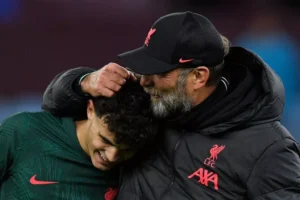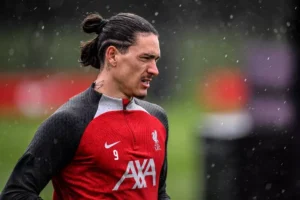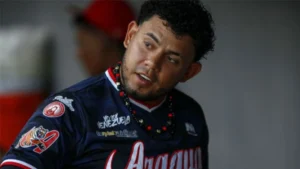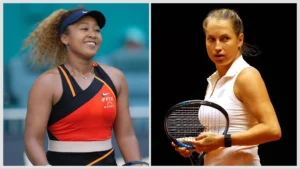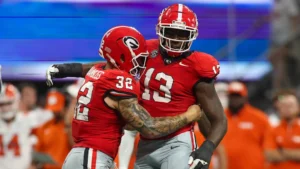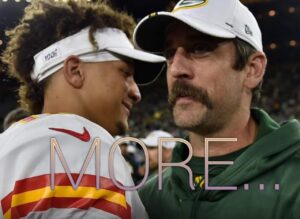
Michael Edwards has returned to the building after deciding to take a sabbatical and step down as Liverpool’s sporting director at the end of the 2021/22 season.
As Liverpool owners Fenway Sports Group faced a post-Jurgen Klopp era following the Reds manager’s decision to call it quits at Anfield at the end of the current season, the first port of call was attempting to entice back the man who had been such an integral part of the Reds’ glorious spell between late 2018 and 2022.
Edwards was courted by a number of the world’s top clubs, including Real Madrid, Manchester United, and Chelsea, all of whom attempted to entice him away from the game and into other jobs in order to recapture some of the magic he created at Liverpool.
Edwards had been working with another former major member of the Reds’ staff, ex-director of research Ian Graham, on the data analytics firm Ludonautics, which Graham had founded in early 2023, but had privately stated that he did not want to be a sports director again.
FSG’s attempts to recruit Edwards in January were unsuccessful, but they tried again, this time with a different role, one in which Edwards will not be working for Liverpool but will instead become FSG’s football CEO.
Currently, those FSG football operations comprise of only one team: Liverpool.
Earlier this month, Liverpool CEO Billy Hogan saw his job with FSG expand, taking on additional responsibilities as head of FSG International while his duties as Liverpool CEO remained unchanged. FSG currently has only one international sporting asset: Liverpool.
Now, in the case of Hogan, his expanded role is a reward for his success and dedication to the FSG cause, and he will help provide advice and assistance to the management of an ever-expanding FSG empire that recently acquired a slice of the PGA Tour as part of the Strategic Sports Group investment in golf’s North American tour.
FSG has been in growth mode for quite some time. They want to purchase and invest rather than sell and divest. That now includes more football opportunities.
Multi-club ownership has been a major topic in European football, with single ownership groups, many from the United States, owning many clubs throughout the world and attempting to identify synergies between them.
Manchester City is at the top of the City Football Group, a broad network of 12 clubs throughout the world that share a common identity centered on the club’s colours and branding, with many of the clubs sporting similar colours to City.
Chelsea owners Blue Co 22 purchased French side Strasbourg last year, while Aston Villa’s owners possess a stake in Portuguese club Vitoria SC, and Brighton & Hove Albion owner Tony Bloom owns Union Saint-Gilloise.
There are numerous other examples of owners attempting to maximise the opportunities available in recruitment by having a broader scope to both find and house talent globally, rather than focusing solely on the main team they own, where the pathway may be far more crowded and some talent may slip through the net. It also allows clubs to identify undervalued potential earlier, reducing the need to pay large transfer payments.
Jim Miller, co-head of direct lending and sports at Ares Management, a US investment firm with several investments in European clubs, told the Financial Times Business of Football Summit in London last month, where the ECHO was present, that having such a network can be beneficial when attracting the best talent in executive positions.
“Having a multi-club system provides a different level of support and possibly access to the top talent at CEO or sporting director level, allowing you to offer something larger than your local club can do on its own, not to mention the general cost-saving synergies that come with sourcing talent.
“That gives us comfort, and we like that, but it also gives us growth in terms of what the asset level can do.”
FSG has previously considered acquiring other clubs. Sources told the ECHO in 2021 that the Reds’ owners were interested in expanding into the South American market, particularly in Brazil. The reason for the increased interest was that the way Brazilian clubs were controlled was changing, allowing foreign finance to enter, as well as a proposal to restructure the top level of Brazilian football in order to increase its visibility and, consequently, media rights.
That pursuit, however, went cold, and efforts were directed elsewhere in terms of team acquisitions, with the addition of the Pittsburgh Penguins NHL team, the Boston Common Golf team, and the pursuit of an NBA expansion franchise in Las Vegas, where FSG partner and basketball icon LeBron James is expected to lead the project.
FSG has a vast North American sporting portfolio that includes the Boston Red Sox MLB franchise and RFK Racing NASCAR team. Liverpool, as the lone European asset, is an anomaly.
North American sports provide greater cost certainty for owners. There is no promotion or relegation, media contracts are longer, salary caps apply, and the college draft system allows for some form of competitive equilibrium to be achieved at the start of each new season.
Football, particularly in Europe, has been incredibly volatile, and the transfer market, along with a lack of salary restrictions and financial constraints that have only lately been demonstrated to have teeth, has made it unappealing for FSG to acquire other clubs.
However, there are changes afoot in terms of financial controls, which have most certainly influenced the direction they are taking in terms of increasing the football side of the business.
When FSG bought the club in 2010 from the wreckage of Tom Hicks and George Gillett’s near-death regime, they did so with the expectation that the game’s upcoming Financial Fair Play regulations would allow them to own well and avoid being dragged into the rat race of heavy spending year after year.
However, FFP did not bite as intended, and little substantial progress has been achieved in establishing a disincentive and guaranteeing compliance in the previous 12 months or so.
The Premier League’s profit and sustainability rules (PSR), which limit clubs to losses of no more than £105 million over three years, with allowable deductions for investments in infrastructure, the women’s team, the academy, and community projects, were harsh on Everton, with the Toffees receiving a 10-point deduction for a 2021/22 breach, which was reduced to six points on appeal. Everton was later found to be in breach in 2022/23, along with Nottingham Forest.
In Europe, the Premier League is expected to adopt UEFA’s new squad cost ratio, which links a club’s spending to its wages and transfer spend versus turnover, maybe as early as next year.
Overregulation can sometimes be discouraging to investors. However, given the Wild West aspect of European football, tighter regulation may be viewed by owners like FSG as an opportunity to put cash to work and try to produce success through their own approach of attempting to own well and sustainably.
Hogan spoke at the SportsPro APAC conference in August, providing some insight into FSG’s stance on multiclub ownership.
“For certain clubs, [multi-club ownership] makes sense,” he remarked. “This is part of their strategy. I believe such techniques differ depending on what those clubs are seeking to accomplish.
“There have been a lot of headlines about what FIFA and UEFA might consider in terms of multi-club ownership. There have been certain restrictions on how much you can own of different clubs and whether they can compete in specific competitions. As far as I can tell, everything is currently being reviewed. So we should expect some modifications and updates over the next few years.
“But, from our perspective, at the time being we’re focused on what Liverpool is doing.”
The time may be now.
FSG may not do this by quickly purchasing more teams and accumulating an increasing number of assets that must be managed. FSG’s ability to keep a firm hand on the wheel across its portfolio at critical moments has proven to be quite beneficial.
In Boston, John W. Henry and Tom Werner welcomed back Theo Epstein, who helped end the 86-year World Series drought in 2004. In order to accomplish this, they had to make it appealing, granting Epstein equity as an FSG partner while also allowing him to concentrate on other jobs in which he was actively involved outside of FSG.
FSG needed to come back to Edwards with a more persuasive proposal. The specifics of that approach will emerge over time as Edwards oversees FSG’s football operations, which will always revolve around Liverpool. As one of the world’s most iconic sports teams and the most valuable in FSG’s portfolio, the emphasis will stay on Liverpool.
However, finding a new way of doing things may be in the cards, and given Edwards’ background in spotting talent that others missed, it is likely that the Reds will place a strong emphasis on improving the Reds’ pipeline to global talent, facilitating player trading, and reducing market risk, as well as the amount spent on acquiring new players. Having your own assets to help you develop these skills can be really beneficial.
The failed pursuit of Moises Caicedo last summer is likely to have sparked some concerns in Boston among FSG executives. How can they locate the kind of talent they were willing to spend £111 million on, at Brighton’s acquisition cost of £4.5 million in 2021? Those are some fairly large margins.
